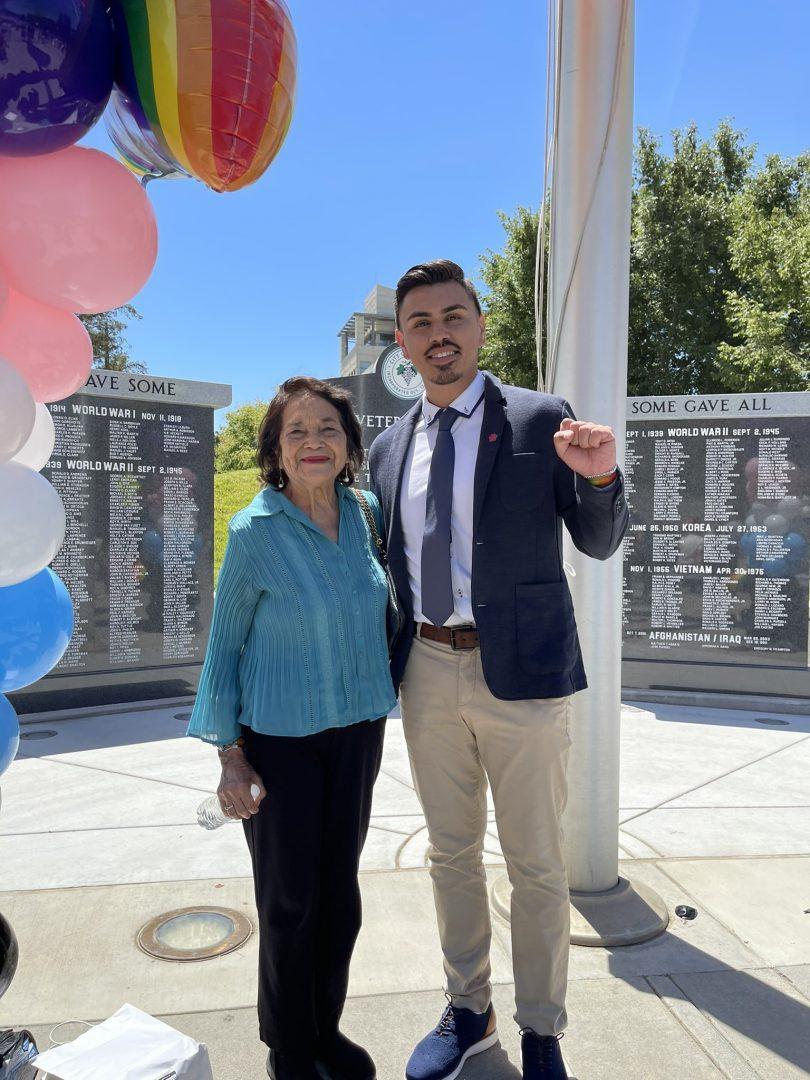For years Estevan Parra Guerrero struggled to embrace his LGBTQ+ and Latino identity. Now he’s working in the Cross-Cultural and Gender Center (CCGC) to use what he experienced to help students who may be going through something similar.
When Parra Guerrero came to Fresno State, there were few resources available for LGBTQ+ students. The CCGC wasn’t founded until 2015, a year after he graduated with his first degree. Throughout his time on campus he saw little to no LGBTQ+ or Latino/a representation.
“Think about being Latino, experiencing racism or oppression, but also being Latino and gay. It’s like a double whammy, it’s additional stress. That’s what I want people to understand,” he said.
Born and raised in South Central Los Angeles as the seventh youngest of 10 siblings, Parra Guerrero said his parents came from Mexico during their teenage years looking for the American dream, but struggled initially.
“I remember [in second or third grade] we were in a two bedroom house. Mom and dad and newborn were alone in one room. All [four] of us boys were in a second room, and my four sisters were in the living room, and we would switch,” Parra Guerrero said.
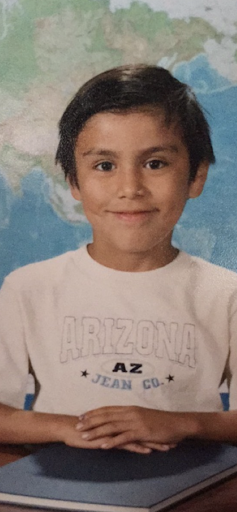
When his parents started their own ceramics business its success enabled them to move to a bigger house, and they later bought the house behind it and tore down the fence between them to accommodate the large family.
Parra Guerrero said his family inspires him frequently, and described them as “strong and united” to this day. His first degree at Fresno State was in business management thanks to his parents’ business.
He said he was also inspired by his parents’ willingness to take risks, as evident in their decision to move to Porterville to start a new business. However, the venture was short-lived, as it started right before the market crash in 2008 and resulted in the family losing everything, according to Parra Guerrero.
“[My father] sat us down and told us, ‘We come from poor. We know what it is to eat beans every day, and maybe a tortilla. We’re going to be okay,’” he said.
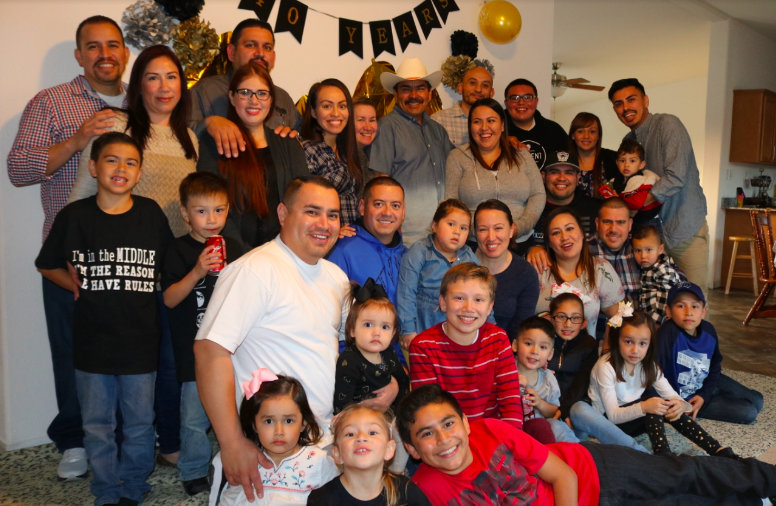
Coming to Porterville was a “culture shock,” according to Parra Guerrero. While he had received very little guidance from administration in South Central LA schools, in Porterville counselors asked him about his college plans and how he would improve his grades.
His grades did improve, but Parra Guerrero found himself asking why the education system had let him down beforehand.
“I started questioning: is it my zip code? Is it the color of my skin? Is it my name?” he said. “I started to feel ashamed of my skin color, my name, my language, my culture.”
He began to let peers call him “Steven” rather than Estevan in hopes of fitting in better.
After signing up for a dance class in his junior year of high school and finding out it was folklorico, he dropped it immediately, opting to take physical education instead of a class that would emphasize his Latino identity. It wasn’t until he saw a Cinco de Mayo performance the next semester that he decided to take the class.
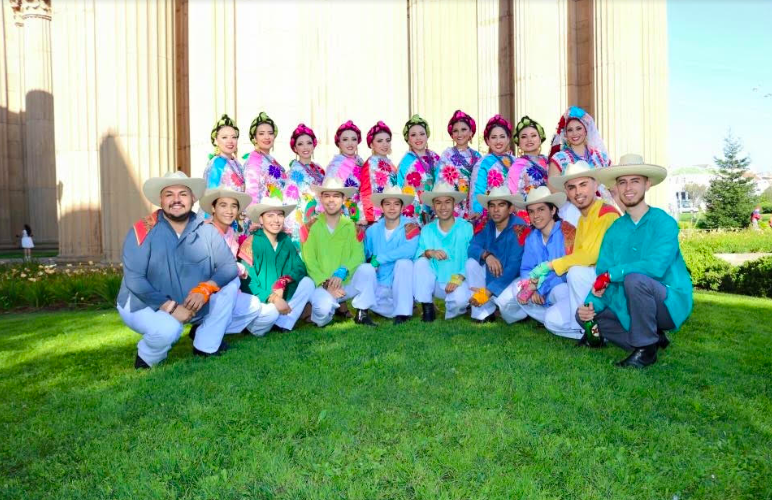
Parra Guerrero credits folklorico with helping him reclaim his identity and encouraging him to go by Estevan again, as well as to incorporate Guerrero into his surname to reclaim his mother’s last name and her contributions.
After high school Parra Guerrero was accepted to San Francisco State University, but chose to attend Fresno State. The campus kept him closer to his family, but far away enough to explore another part of his identity he was struggling with.
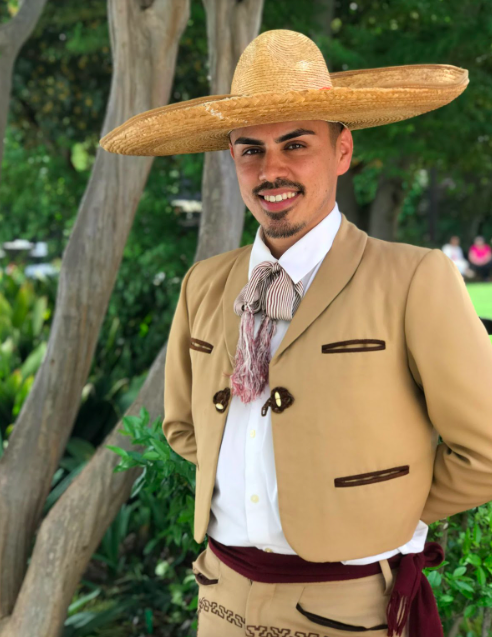
“At the same time, I was hiding my true colors of a confused, gay man, a gay teenager. So I said, ‘I need to go experiment,’” he said.
Parra Guerrero recollected multiple instances of homophobia from peers, colleagues, coworkers and even family. He said he was often wary of his behavior, aware that a single comment or a rainbow bracelet could potentially “out” him and subject him to homophobia.
He continued to hide his identity after graduation, though it put extra pressure on him. When he began to work in Porterville he was reluctant to move in with family again, and often drove from Fresno to Porterville instead. It was this pressure that led to him coming out to his family at 24 years old.
“I remember where we were. There was a bonfire, and I looked up to the sky and I said, ‘Grandma, you better help me with this one.’ I don’t know where I got this courage from. Maybe it was because I was tired,” Parra Guerrero said.
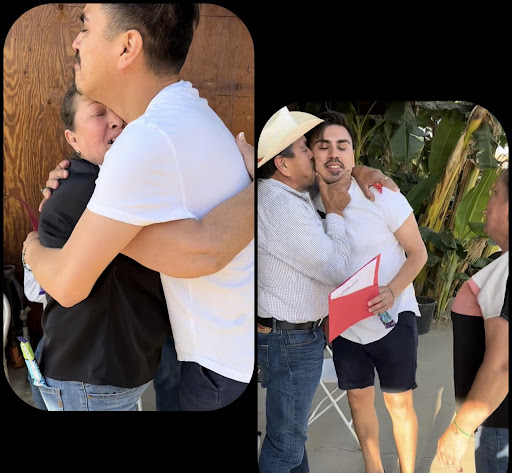
It was that night he told his brothers. Eventually other members of his family found out, and while some were initially confused or surprised, they confirmed their love and support for him. He remembered being worried when his mother confronted him only for her to tell him to “live your life with whoever you want to live with.”
“She said, ‘Now your dad, that’s going to be a different story. You’re going to have to tell him whenever you’re ready. He might stop talking to you for a day, or for a few weeks. But he loves you so much,’” Parra Guerrero said.
Shortly after coming out and just before returning to campus for graduate studies in educational leadership and administration, he decided to go to a bar for “one last” outing before the semester began. That night, he met his partner, Joshua Serpa.
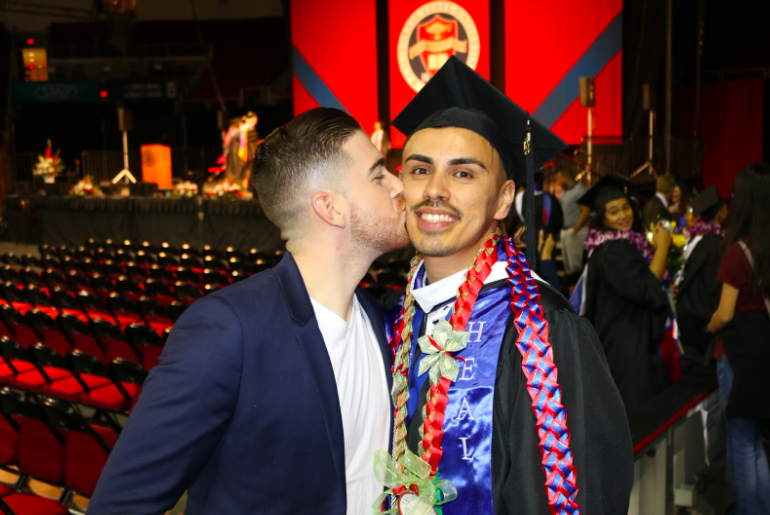
Parra Guerrero credits his partner of six years with helping him through the transition, including when the opportunity for another risk came up: to take a pay cut and work a temporary entry level position on campus.
Like his father had done years before, Parra Guerrero took the risk.
His work ethic and networking within that position led to another temporary position that became permanent: his current role as coordinator of LGBTQ+ and gender programs and services.
“Identifying as part of the LGBTQ+ community, then having the opportunity to do work and represent our community at Fresno State, was a blessing in disguise for Estevan,” Serpa said.
It was an opportunity for Parra Guerrero to be his authentic self while also giving back to the LGBTQ+ community. In his position he finds himself completing a range of tasks that include directing student staff, meeting with students who may be experiencing personal crises, collaborating with other departments and more.
“When people say my job is different every day, I mean it. My job is different every single day,” Parra Guerrero said. “I plan my schedule and by noon on Monday it gets thrown off because something happens. Which I don’t mind. My work is important.”
Those who work with him applauded his dedication to the role, and said his lived experiences make him especially effective.
“His love for the work he does and the students he serves is very transparent for those who have had the opportunity to meet and work with him,” said Shimel Her Saychou, interim lead coordinator of the CCGC. “He understands the community he serves and he finds ways to support the community he serves.”
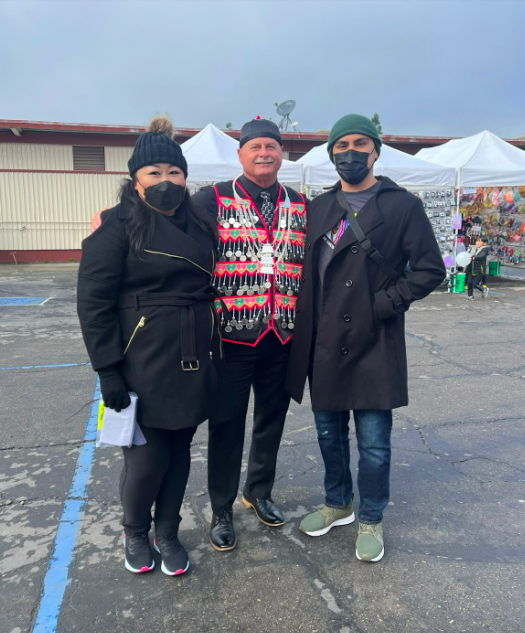
“I think that he is able to bring his lived experiences as a Chicano Latino, as a member of the LGBT community, as a first generation college student, his coming out journey — I think all of these things together gives him a sense of connections to the students on campus that we serve,” said Peter Robertson, director of alumni connections.
Robertson worked closely with Parra Guerrero to hold the first ever pride flag raising on campus in 2021. Parra Guerrero took charge in this year’s pride flag raising, where the progress pride flag was raised for the first time.
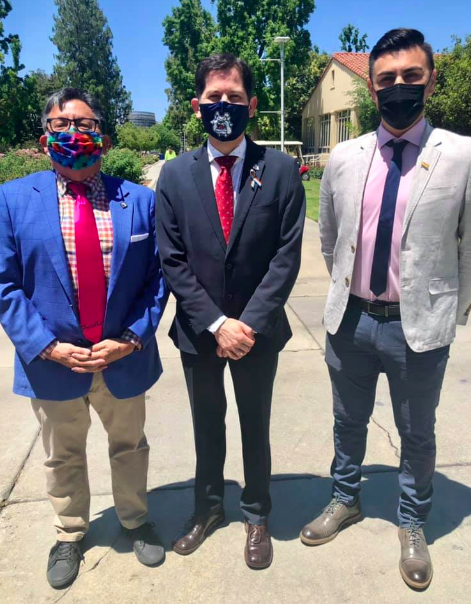
“He calls me his mentor, which just warms my heart, but he also mentors me. Every time I interact with him, I learn something. Every time I see him in action, there’s things he does that I want to emulate in my life, personally and professionally,” Robertson said.
It’s evident that Parra Guerrero, who is about to pursue his third degree at Fresno State in educational leadership and is three years into his role on campus, has made an impact. When it comes to his future, friends and colleagues came to the same ambitious conclusion: Parra Guerrero could be university president one day.
“[In his future] I see university presidency. If that’s what he desires, he has what it takes,” said Francine Oputa, former director of the CCGC who recruited Parra Guerrero for the interim CCGC position after they met at a diversity workshop.
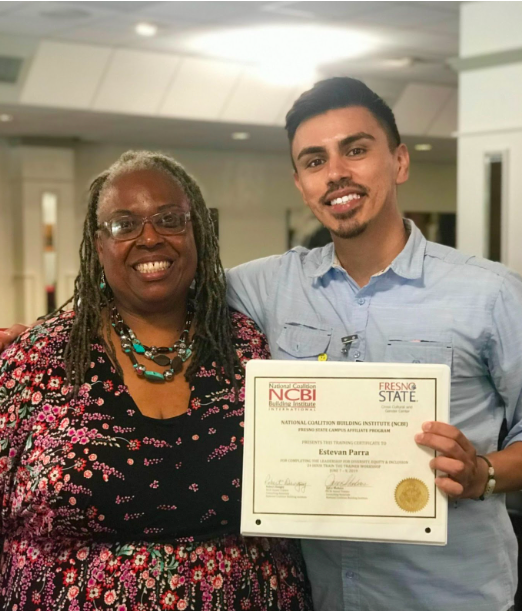
Currently, Parra Guerrero said he’s focused on improving the range and depth of the services available at the CCGC. While the center once had seven full-time staff and up to 20 part time students, the pandemic downsized the staff severely.
“It shouldn’t be one coordinator overseeing gender programs and services and also LGBTQ+ programs and services. It shouldn’t be one coordinator to oversee Indian programs and services and Asian Pacific Islander programs and services,” he said. “What I’m trying to get at, you get the point: [we need] more staff in the center, more spacing.”
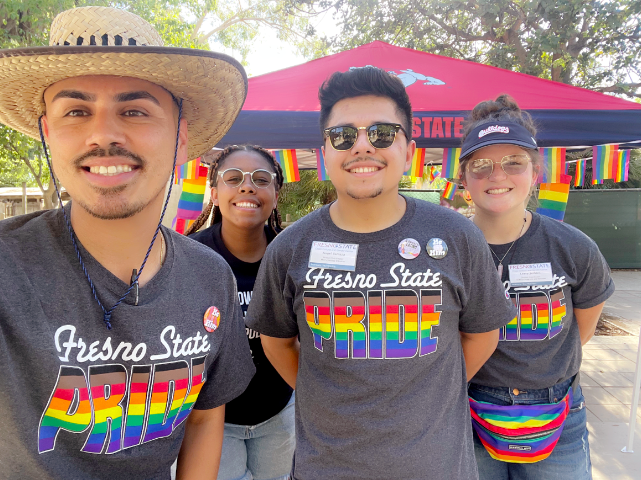
He’s ready to take the initiative in calling for more staffing and representation, and he is fully committed to making sure students find a safe space on the campus he loves.
“This is where I want to retire,” Parra Guerrero said. “I want to invest the rest of my lifetime in this institution.”




